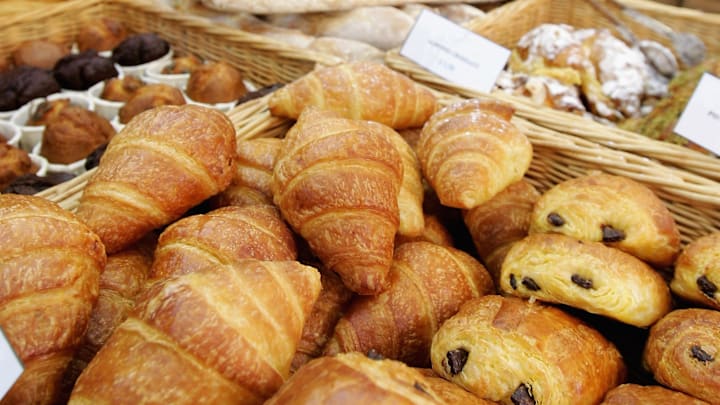Magical realism is such a strange genre - sometimes the magical element is hinted at to the point it's not there, sometimes it is a big part of the plot. I took a class on the genre when I was in grad school, and even then it seemed like there was no set standard to what makes a magical realism story: one day we would be reading about Black Friday turning shoppers into zombies, the next we would be reading about a regular person who we find out at the end of the story doesn't have a reflection. Because of how much I have studied the genre, I feel like I have the authority to say that this book should not be categorized as magical realism at all.
In fact, the book feels like it doesn't actually know what genre it is supposed to be.
Edith Lane needs a change in her life, and on impulse, she applies to be the Assistant Manager of a Bakery in Paris. However, her plans quickly change once she gets to France, when she finds out the job is not actually in the City of Lights, but instead the small town of Compiègne, about an hour north. Disappointed but committed, Edie finds that life in Compiègne is simple, but after finding a mysterious recipe book, she starts to realize that maybe her and this bakery's fates are intertwined.
To start with the mismatch of genres, this book mostly follows the patterns of a romance novel. Edith meets her dream guy, falls in love, finds out a big secret about them, and then they have to work it out. However, it's also partially historical fiction - constantly going back in time to the original owner of the bakery, and telling the story of what life was like in Compiègne in World War II. In addition, it's also a girl-boss story about Edith being the person to save the bakery and a mystery of the secrets of the bakery and the family that runs it. And somewhere in all of that, it's also supposed to be magical realism, so the elements that could have been so much better felt like afterthoughts. I wish that the author had decided to take some of these elements out so the story's clear direction could shine through. And what's sad is, the copy I got is a release, as this book has been out for years, meaning this version is after it's been edited and looked at multiple times.
One of the highlights of the book was the setting, with this element being the strongest part of the entire book. Evie Woods masterfully made me smell the fresh breads, from the traditional loaves to the French delicacies. I could imagine every single inch of the bakery, from its traditional building to its rustic charm. There were quite a few times in the book that I wished I could walk in and get a croissant to snack on as I continued to read. I truly couldn't help but wish that the little bakery was a real place, where I could drink coffee, have a croissant, and read a book without a care in the world.
Overall, this book had so much potential it just didn't reach. It was too mismatched, and the opportunities to play into the magical realism elements of the story were either passed over or ignored. I hope the book finds its audience, but I can confidently say I don't think this one was for me.
